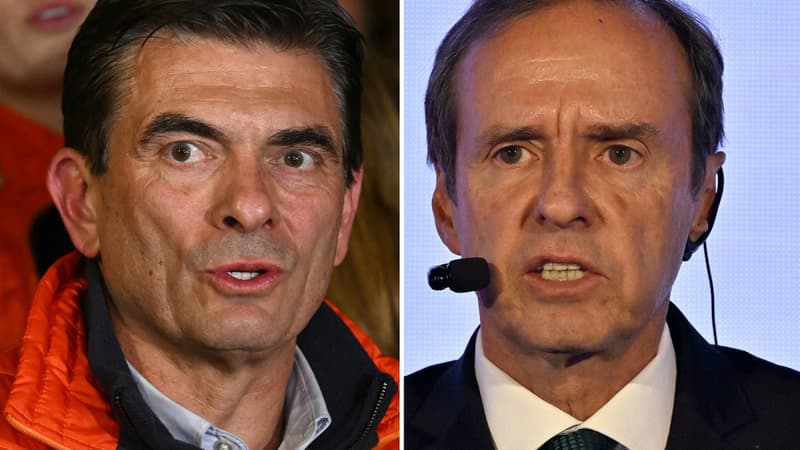Two right -wing candidates will compete in the second round of the presidential elections in Bolivia, according to a rapid count of the electoral authorities, marking the end of two decades of the left governments in a country immersed himself in a serious economic crisis.
To everyone’s surprise, the Senator of the Center Right Rodrigo Paz, son of former President Jaime Paz Zamora (1989-1993), was the first in 32.1% of the votes, according to the results communicated by the Supreme Electoral Court (TSE).
The former right-wing president Jorge “Tuto” Quiroga (2001-2002) follows closely with 26.8%, according to the same estimates. However, the millionaire Samuel Doria Medina, a favorite in all surveys until a week ago, is relegated to third place with 19.8% of the votes.
“I think the left has made us many problems”
The vote took place in a context of a serious economic crisis marked by a chronic shortage of dollars and fuel, while annual inflation is around 25%, an unprecedented level for 17 years.
Mayó responsible for the debacle, outgoing President Luis Arce, previously supported by former President Evo Morales (2006-2019), but now in conflict with him, he has given up a second mandate.
Andmonico Rodríguez, the president of the Senate also from the left, and the candidate of movement towards socialism (more) in power since 2006, Eduardo del Castillo, have not been able to convince.
“I want a change. I think the left has done many problems,” said Miriam Escobar, a 60 -year -old retiree. “There is no work, no gasoline, no diesel, everything is very expensive,” he deplored after voting in La Paz.
The correct encouragement candidates promised to break the statist model established by Evo Morales. Under his presidency, poverty has been withdrawn and tripled GDP, but the fall in income since 2017 immersed the country in the crisis.
“This is the end of a cycle,” said Jorge “Tuto” Quiroga, after voting in La Paz. This engineer, who had provided an interim at the head of the country for a year (2001-2002), promises “a radical change” in case of a victory.
Agustin Quispe, a child under 51, however, described the “tutorial” Quiroga as “dinosaur” and affirmed his support for Rodrigo Paz, who focused his campaign on the fight against corruption and the lowest taxes.
“Bolivia needs stability, governance and an economic model that headed towards people instead of the state,” said Rodrigo Paz after voting in Tarija, in the south of the country.
The heaviest setbacks for the left since the arrival of Evo Morales
The two winners will compete in a second round on October 19, inflicting on the left their heaviest setback since the arrival of Evo Morales.
The former 65 -year -old state of state, hoped to run for a fourth presidential mandate, but justice, limiting them to two, fired him from the race. Directed by an arrest warrant in a minor milking case, the former Coca planting trade unionist lives rooted in his strength in the center of the country.
When voting, knocking down the sandals, Evo Morales denounced a “without legitimacy” ballot, claiming that the void, which he encouraged during the campaign, was going to prevail, while his supporters formed a cord around him, AFP said. The police presence is not visible.
Despite his eviction, the first head of state of Bolivian native origin maintains solid support in certain rural and indigenous bastions. But his conflict with Arce fractured the MAS, and even those who have long benefited from social policies have expressed their disenchantment.
For Daniel Valverde, a political scientist at Gabriel René Moreno University, “the worst enemy of the left was the left itself.” “Corruption, mismanagement, lack of decisions and improvisation ended up exhausting the population,” he said.
Source: BFM TV


